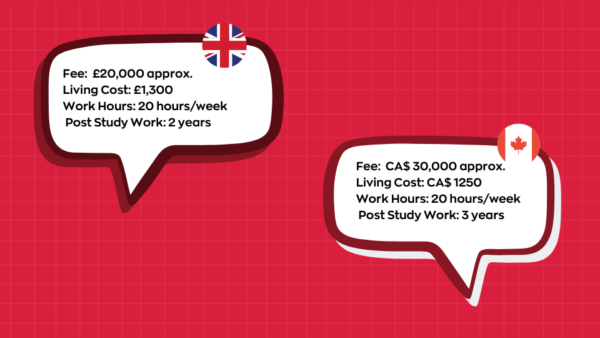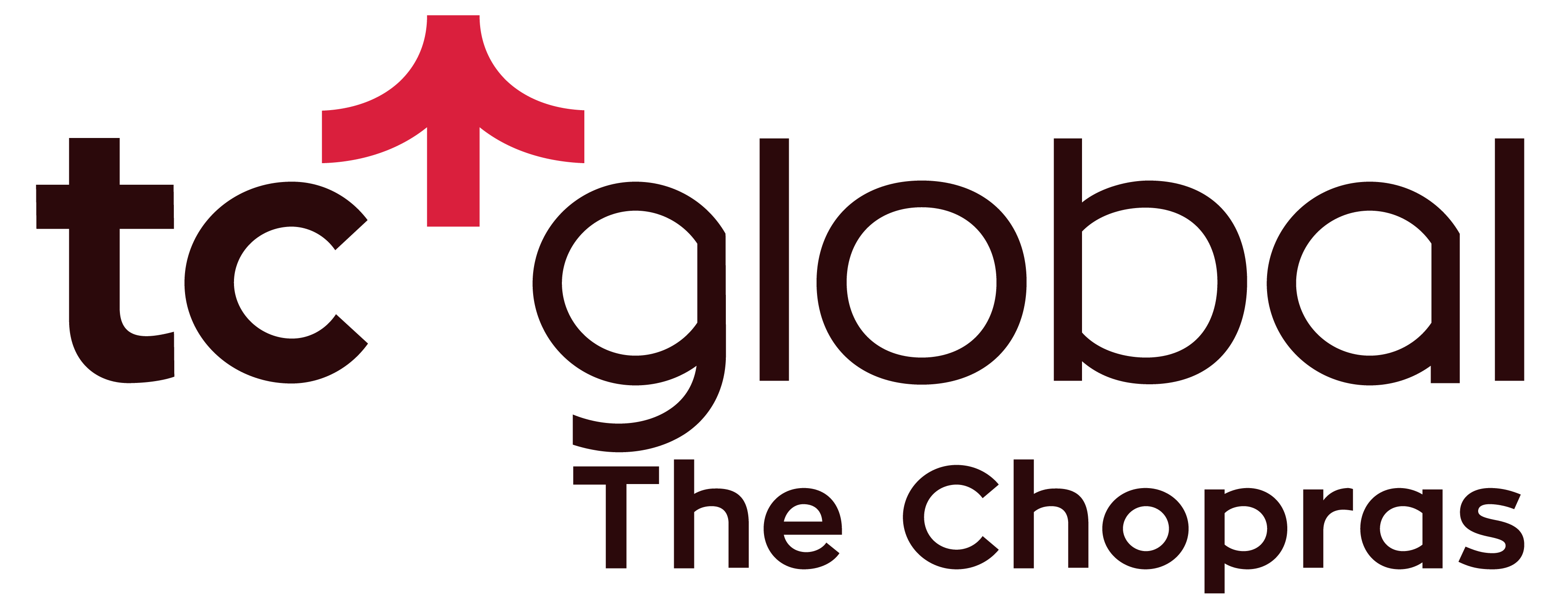Each country presents distinct benefits, such as the UK’s renowned academic heritage and its diverse cultural landscape, while Canada excels with its affordability and welcoming atmosphere.

On the flip side, challenges such as higher living costs in the UK or weather adaptation in Canada should also be evaluated. Let’s have a look at the advantages and disadvantages of both study-abroad destinations.
|
UK |
Canada |
Your choice depends on |
| The quality of education |
- Globally recognized for its academic excellence, with several universities consistently ranking among the top institutions worldwide
|
- Ranked among the top destinations for education,
- Renowned for its for high-quality academic programmes and research opportunities.
- Ranks third globally for published scientific research.
|
- Both countries have institutions and courses of repute.
- Your career aspirations should be the sole factor when choosing between the UK and Canada
|
| Flexibility |
- UK universities offer diverse course options, allowing students to customize their studies based on their interests and career aspirations.
|
- Canadian universities offer flexibility in course selection, allowing students to tailor their programs to their interests and goals.
|
- Both countries provide flexible options to students.
|
| Duration |
- UK universities offer one-year master’s programmes and shorter PhDs providing an efficient path to completing higher education.
|
- Postgraduate courses in Canada are shorter than in many other countries, providing quicker entry into the workforce.
|
- The shorter duration of courses in the UK is advantageous for students who are looking to embark on their careers in a short span.
|
| Average Tuition Fees |
- Tuition fees vary based on courses and institutions, with an average of £17,109 per year for international students.
|
- Tuition fees vary based on programs and institutions, with an average of around $36,100 for undergraduate and $21,100 for graduate programs for international students.
|
- Canada’s cost of education is cheaper making it more affordable for international students.
|
| Work Regulations |
- International students can work up to 20 hours per week during term time and full-time during holidays.
- The Graduate Route allows international graduates to work for up to two years for postgraduate students.
|
- International students in Canada can work up to 20 hours per week during term time and full-time during scheduled breaks.
- The Post-Graduation Work Permit (PGWP) allows graduates to work for up to three years.
|
- Canada’s PGWP allows international students to work for 3 years and helps them get on a path to citizenship.
|
| Campus Life |
- UK universities offer a vibrant campus life with various clubs, societies, and events that enrich the student experience.
|
- Canada offers diverse and inclusive campus environments, hosting students from around the world and providing numerous extracurricular activities.
|
- Both countries have a multicultural and welcoming campus life.
|
| Cost of Living |
- The UK has a relatively higher cost of living, especially in major cities like London, requiring careful budgeting.
|
- The cost of living is moderate compared to other study destinations, averaging around $15,000 per year for university students
|
- Canada’s affordable cost of living isan important factor to consider.
|
| Safety |
- The US News 2021 Best Countries Report gave the UK a score of 55.4 which is lower than Canada.
|
- The U.S. News 2021 Best Countries Report gave Canada a score of 96.7 out of 100 for safety.
|
- Canada is safer as compared to the UK and has a lower crime rate
|
| Weather |
- The UK experiences milder climates, but weather can be unpredictable and vary between regions.
|
- Canada experiences varying climates, with colder winters in some regions. The weather can be challenging for those unaccustomed to colder temperatures.
|
- UK’s climate will be more conducign to international students.
|

UK
The historical and cultural connections between India and the UK alongside the substantial Indian diaspora residing within the UK, often translate to a strong community that welcomes Indian students.
UK master’s programmes usually last for just one year, making them a cost-effective choice, and around 70% of Indian students studying in the UK opt for postgraduate studies in renowned colleges like Cambridge, the University of Edinburgh, among others.
However, the high cost of living, particularly in major cities like London, poses a financial challenge. Tuition fees for certain programmes can be exorbitant. PG course fees for international students can range from £9,000 and £30,000, with an approximate average of £17,109 per year according to the British Council.
Proving English language proficiency through exams like IELTS, TOEFL, PTE, etc can be both challenging and expensive for some students. Moreover, gaining admission to UK universities is highly competitive due to limited spots for international students, necessitating high academic achievement, letters of recommendation, and above-average scores across the board along with a statement of purpose.
Canada
Canada’s streamlined immigration procedures, accommodating policies for students, employability prospects, and diverse cultural milieu collectively contribute to its stature as a sought-after hub for acquiring top-notch education and forging robust career paths. Its top colleges like the University of British Columbia, and the University of Toronto amongst others are also a major draw for international students.
In 2022, the Ministry of Immigration, Refugees, and Citizenship, announced the temporary removal of the 20-hour-per-week restriction on off-campus work hours for post-secondary students. The government has decided to welcome immigrants at a rate of 1% of Canada’s population.
One significant factor influencing the overall cost of living for international students is the city they opt to reside in. While metropolises like Toronto and Vancouver boast vibrant lifestyles, they also come with high expenses, making budgeting a crucial consideration.
Another aspect to contend with is Canada’s vast geographical expanse, resulting in diverse climatic conditions. The local weather can vary significantly based on the region, with average summer temperatures of 35°C and winter temperatures plummeting to -25°C. For students hailing from warmer climates, adapting to the harsh Canadian winters might prove to be a notable challenge during their academic journey.
The tuition fees for universities in Canada are subject to variation based on the specific programme and institution of choice. According to Statistics Canada 2023, on average, the tuition fee for international students is $36,100 for bachelor’s degrees and $21,100 for graduate programmes.
On average, the annual living expenses for university students in Canada amount to around $15,000 (Universities Canada, 2019). It’s important for students planning to study in Canada to factor in both costs of studying and living costs to effectively budget for their educational journey in the country.
Winner: Tie
When comparing the advantages and disadvantages of studying in the UK and Canada, it’s apparent that both countries offer compelling opportunities as well as certain challenges. The UK’s rich cultural ties and one-year master’s programmes attract Indian students, but the high cost of living and competitive admissions as well as test scores like GRE and GMAT that are required to secure a spot in universities stand as drawbacks.
Conversely, Canada’s welcoming environment and post-graduation work permit provide strong incentives, yet the cost of living varies across cities and adapting to the diverse climate might pose a challenge.
The education system in both countries is excellent, but financial considerations and lifestyle adjustments play pivotal roles in determining which destination aligns better with an individual’s goals and circumstances.




















